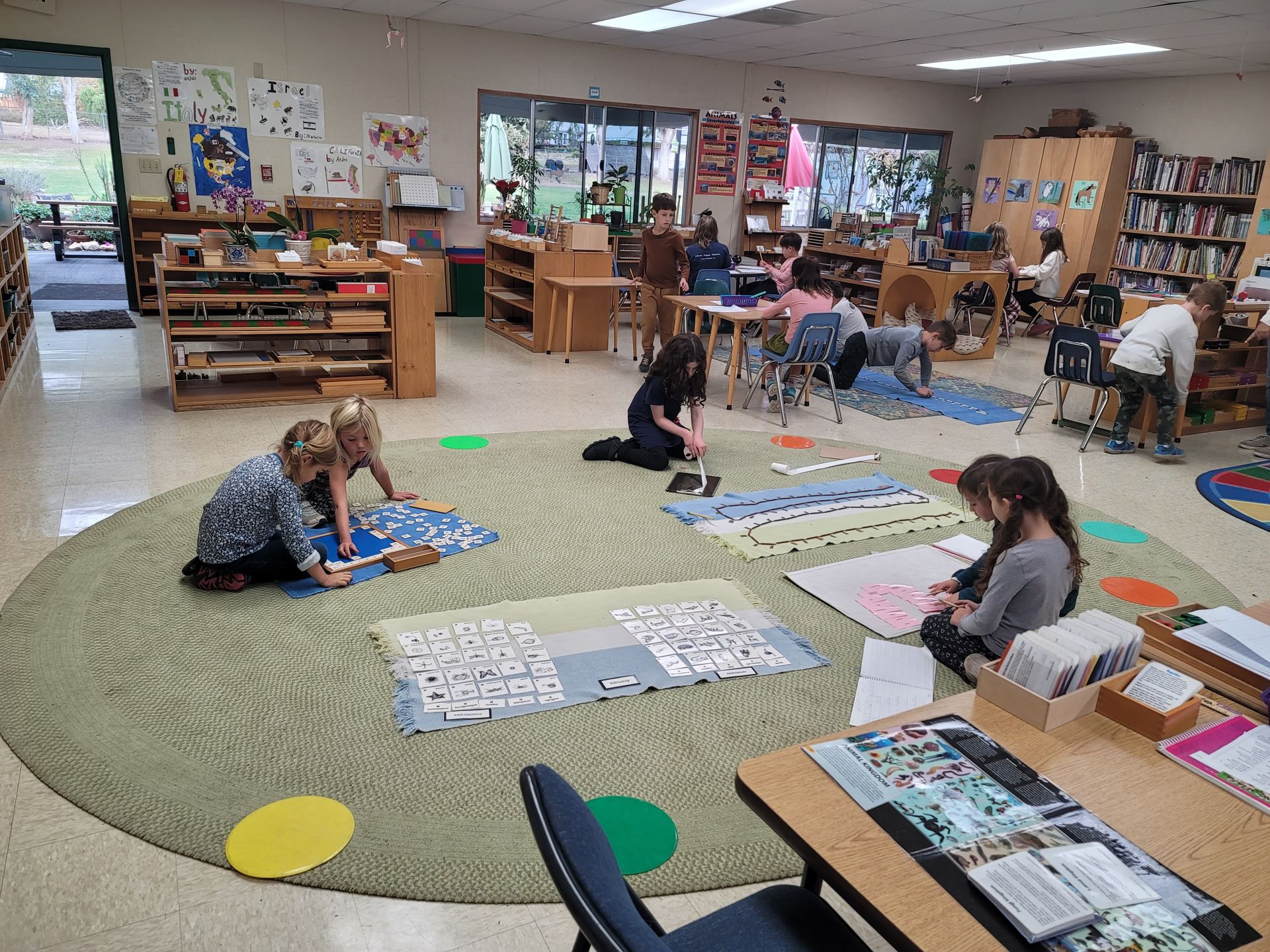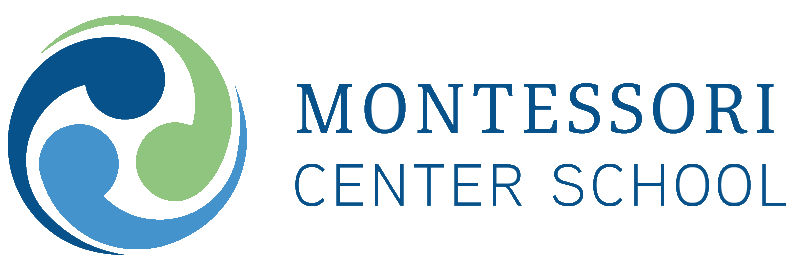Montessori Elementary vs. Traditional Elementary

Montessori Elementary differs significantly from a traditional elementary school education and other progressive programs. In this post, we break down what these differences are and why they matter for children ages 6-12.
The Montessori approach is distinct because it is designed around the child’s holistic stage of development. In traditional education, the child’s journey is designed around academic competence. Here are some of the biggest differences from the child’s perspective:
Traditional (commonly found in public schools):
- Same-age: Children are grouped by their age and change classrooms every year.
- Teacher-led: Students must keep pace with the teacher, who directs what is learned each day.
- Rigid curriculum with subjects taught in short daily increments: Content is exchanged from teacher to class according to an hourly schedule
- Rote memorization: To keep pace with the class and teacher, students must learn to memorize content quickly
- Frequent homework, quizzing, and standardized testing: Since classroom subjects are studied in specific, short periods of the school day, children take on heavy homework and testing to practice what they didn’t get to retain during school
- Rewards and punishments used as quick-fix behavioral tools: Uniformity is often emphasized over individuality, with less time to dedicate to long-term social and emotional skills.
- Movement is treated as a break from learning: Hands-on work and flexible seating may be offered, but children are expected mainly to sit and listen for extended periods, and bigger movement is reserved for recess.
Montessori:
- Multi-age: Children are grouped according to their stage of development, changing classrooms every three years.
- Child-led: Each student learns at their own pace, and the teacher serves as a guide ready to support individual areas of struggle – or extend advanced lessons for mastery.
- Structured curriculum with long, open-ended work periods: Structured academics are thoughtfully sequenced, but the child is given more agency and time to self-discover at their interest level and readiness.
- Experiential learning: Students learn by doing with self-correcting, hands-on materials and real-world application.
- Holistic social and emotional skills proactively nurtured: Montessori emphasizes inner discipline and life skills alongside academics – eliminating the need for external reward and punishment systems.
- Movement is considered a core part of how children learn: Children freely move, collaborate, and socialize in their classrooms, with options on where to work, with who, and for how long. There are no rows of desks.
The Montessori Elementary Difference
Here’s how that looks at MCS:
Classrooms are age-appropriate, not age-specific
When a student enters first grade, they’ll join what’s called the Lower Elementary Community, spanning grades 1-3. Upper Elementary is comprised of grades 4-6. These multi-age classrooms break from the “factory-based” mold of teaching children en masse by age, shuffling students around the same lesson at the same time. These three-year communities provide individual opportunity for students to progress on their own timelines, while gaining the social benefits of interacting with people both younger and older – a much more realistic community that is how the workforce functions.
Group learning at the child’s lead
In traditional elementary, a student’s responsibility is tied to following directions and managing follow-up work independently as it is tasked. In Montessori Elementary, lessons are given in small groups with students taking the lead on project ideas, research questions, and the work that follows. Responsibility is nurtured by giving students the freedom to initiate, plan, and problem-solve. The student is an active driver of their learning, rather than a passive participant. This promotes curiosity, creativity, as well as retention of knowledge through meaningful experience – not just fast acquisition of facts through memorization.
Pressure-Free Assessments
In traditional elementary, a teacher delivers lessons to the class, and then students are assessed based on how well they can recall this information through frequent testing. This is a rigid, delayed feedback loop that results in heavy homework to support test prep. In Montessori, more time is given for the child to connect directly to the lessons each day. Seeing children work with the lessons, not just listen to them, gives real-time feedback on areas of struggle or mastery. Students are able to deep dive during classroom hours and the teachers are able to assess through observation –– eliminating the need for repetitive testing and artificial deadlines within which to acquire knowledge. Seasonal screeners and standardized tests are conducted at select points of the year as an educational benchmark.
Advanced Academics and Community Outings
Taking a holistic approach through the Montessori Method doesn’t come at the cost of academic rigor, and since we know children at this stage are naturally driven to understand more complex subjects, the Montessori Elementary classroom is meticulously prepared to offer an advanced curriculum in math, language, literature, science, history, geography, culture, music, and art. On top of this, students practice gardening, cooking, theatre, student government, computer technology, and also help plan their own field trips.
Is Montessori Right for My Child?
Collectively, these differences feel significant. When the adult-led structure of traditional schooling has been our recent norm, and progressive child-led models have been associated with lack of structure, it can be hard to grasp how Montessori manages to offer both – but it does.
Montessori empowers each student with broader life skills beyond academics, while laying a deep foundation of knowledge that is key to success. This balanced approach is much more applicable to the workforce, and ongoing research is validating that Montessori graduates have an advantage both academically and socially and emotionally. The Montessori Method is founded upon meeting each child where they are, which makes it an inclusive path for any and every child.
Contact our Admissions Director today to schedule an observation of our elementary classrooms.
Text: Guidepost Montessori
Programs
Montessori Center School admits students of any race, color, religion, national and ethnic origin, gender identity, and sexual orientation to all rights, privileges, programs and activities general recorded or made available to students at the School. It does not discriminate on the basis of race, color, religion, national and ethnic origin, gender identity or sexual orientation in the administration of its educational programs, admission and tuition assistance policies, and athletic or other school-administered programs. Non-Profit Education Organization, License No. 426205239


